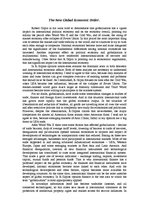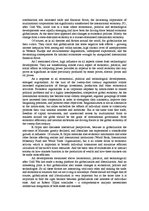R.Gilpin also discusses intellectual perspectives, because in globalization the relevance of Marxism greatly declined, and liberalism has experienced a considerable growth in influence. Of course, R.Gilpin mentions also economic nationalism and some other factors affecting realism and international institutions (World Bank, International Monetary Fund and World Trade Organization), but it all comes down to economic activity which is important to benefit individual consumers and maximize efficient utilization of the earth’s scare resources. And the basic task of economists is to instruct society on how markets function in the production of wealth and how these markets can be made most efficient.
All developments mentioned above (economical, political, and technological) after Cold War has made a strong platform for globalization and liberalization. And an interesting point is that globalization also makes changes in economics, politics and technologies. So all these factors are interacting with each other and making the trade and economical situation that we are living in nowadays. States should not forget that of course, globalization and liberalization is very important but at the same time it is important to find the right balance between globalization and interests of individual state. And as Robert GIlpin concludes – a comprehensive analysis necessitates intellectual integration of both states and markets.
…
Robert Gilpin in his work tried to demonstrate that globalization has a great impact on international political economy and on the economy overall, pointing out mainly the period after World War II and the Cold War, and of course, the rising of market economy after collapse of Soviet Union. In this period the most important thing was to restore the market and trade stability in the world, and to countries to try to trust each other enough to cooperate. National economies become more and more integrated and the significance of the fundamental differences among national economies has increased.


